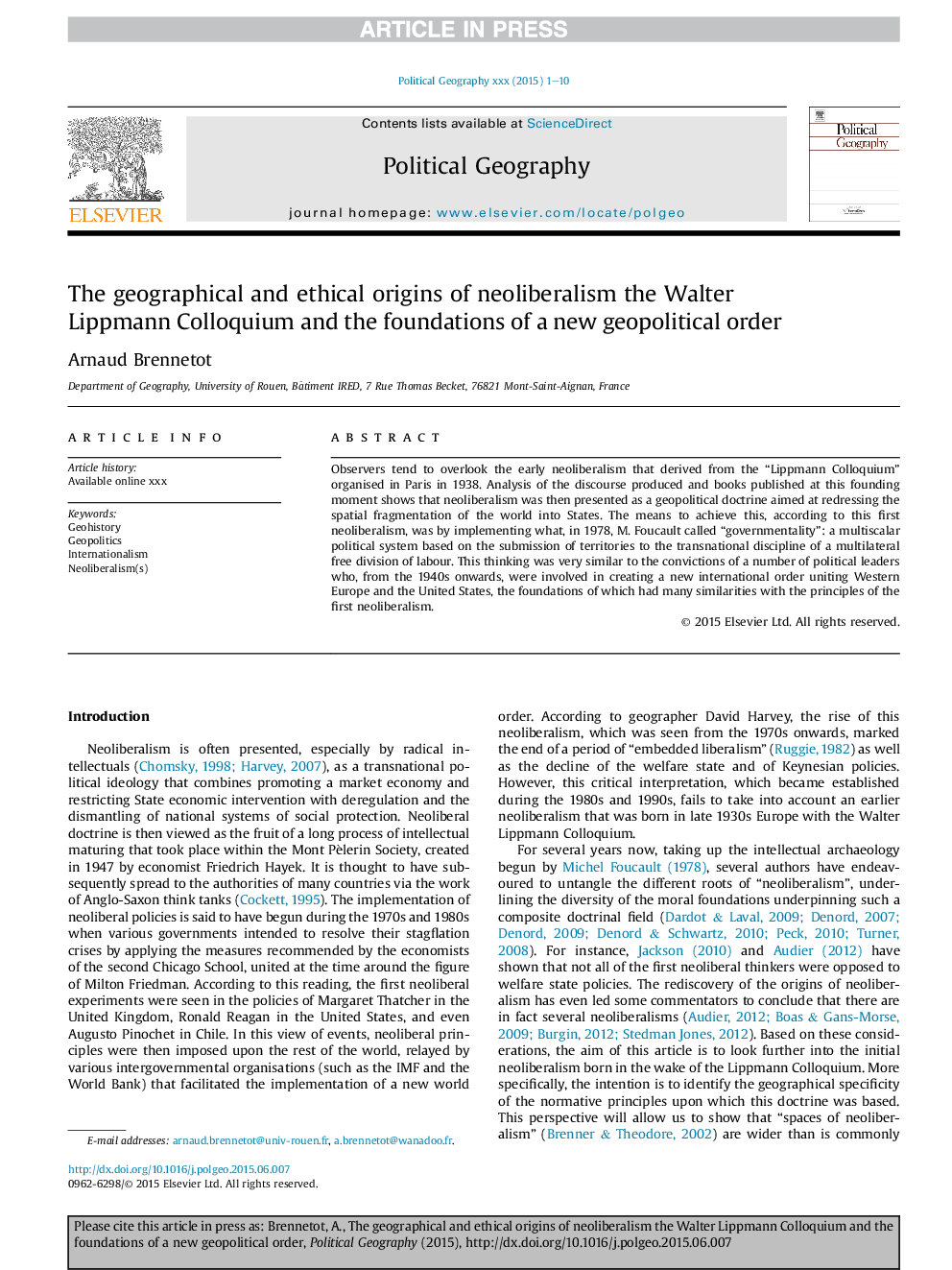| Article ID | Journal | Published Year | Pages | File Type |
|---|---|---|---|---|
| 7493107 | Political Geography | 2015 | 10 Pages |
Abstract
Observers tend to overlook the early neoliberalism that derived from the “Lippmann Colloquium” organised in Paris in 1938. Analysis of the discourse produced and books published at this founding moment shows that neoliberalism was then presented as a geopolitical doctrine aimed at redressing the spatial fragmentation of the world into States. The means to achieve this, according to this first neoliberalism, was by implementing what, in 1978, M. Foucault called “governmentality”: a multiscalar political system based on the submission of territories to the transnational discipline of a multilateral free division of labour. This thinking was very similar to the convictions of a number of political leaders who, from the 1940s onwards, were involved in creating a new international order uniting Western Europe and the United States, the foundations of which had many similarities with the principles of the first neoliberalism.
Related Topics
Social Sciences and Humanities
Arts and Humanities
History
Authors
Arnaud Brennetot,
